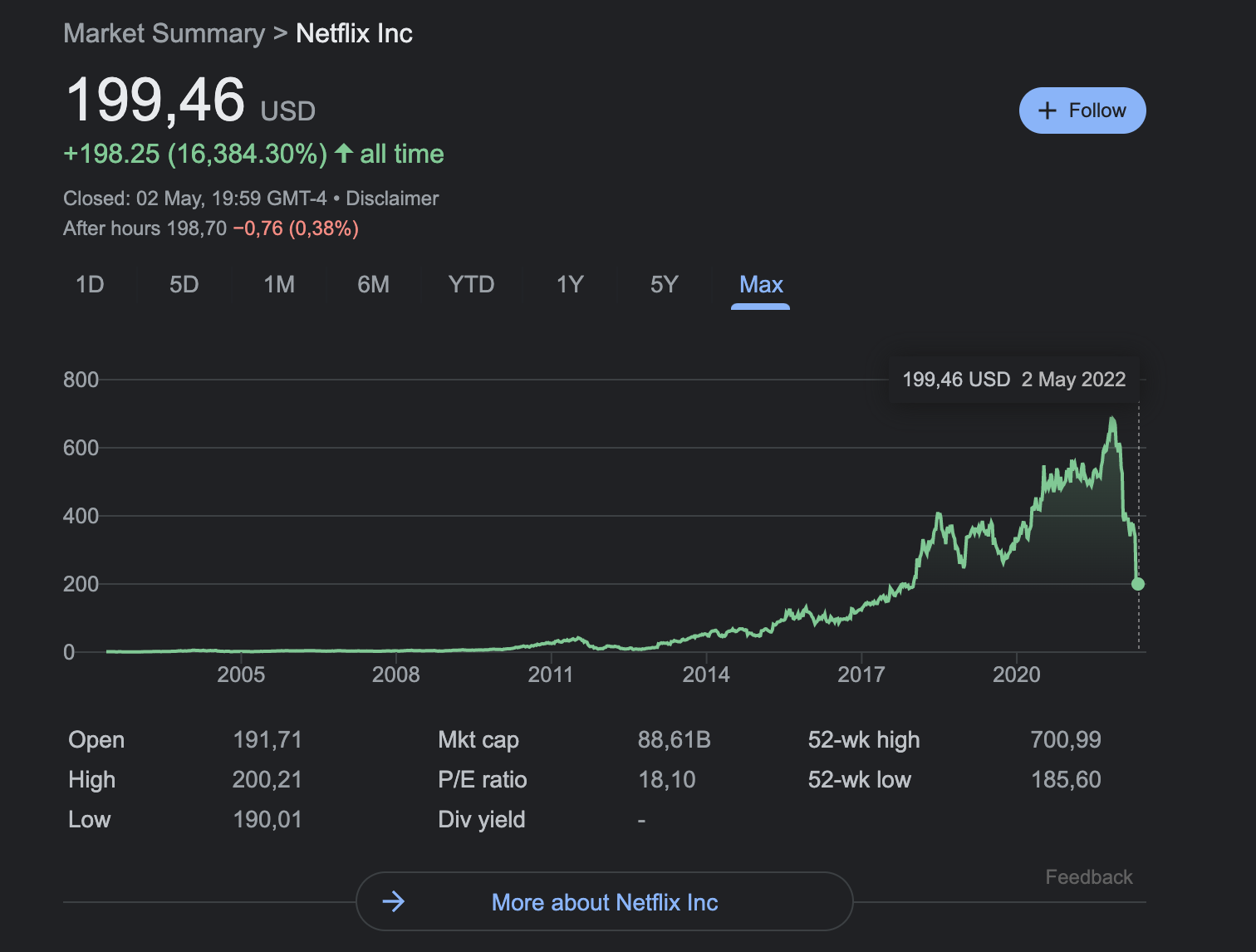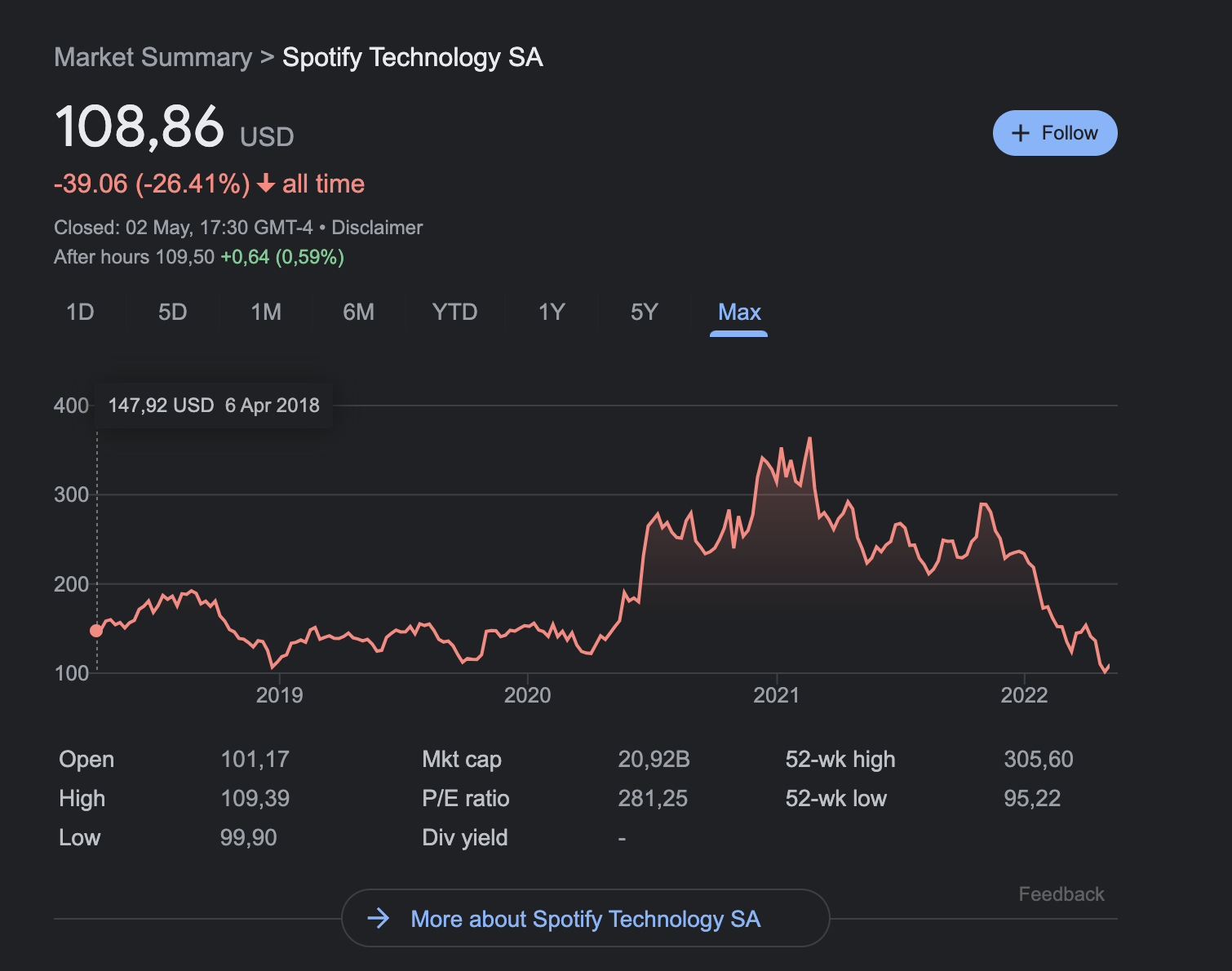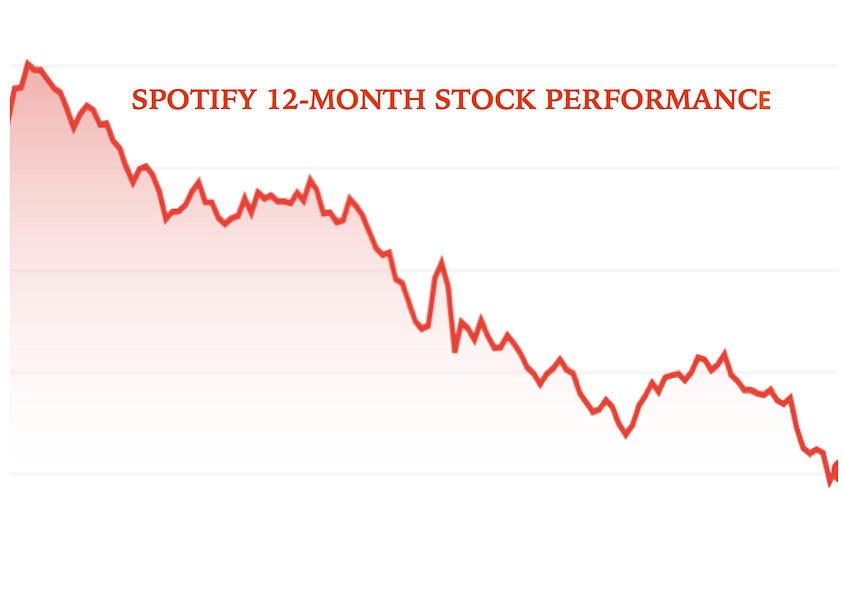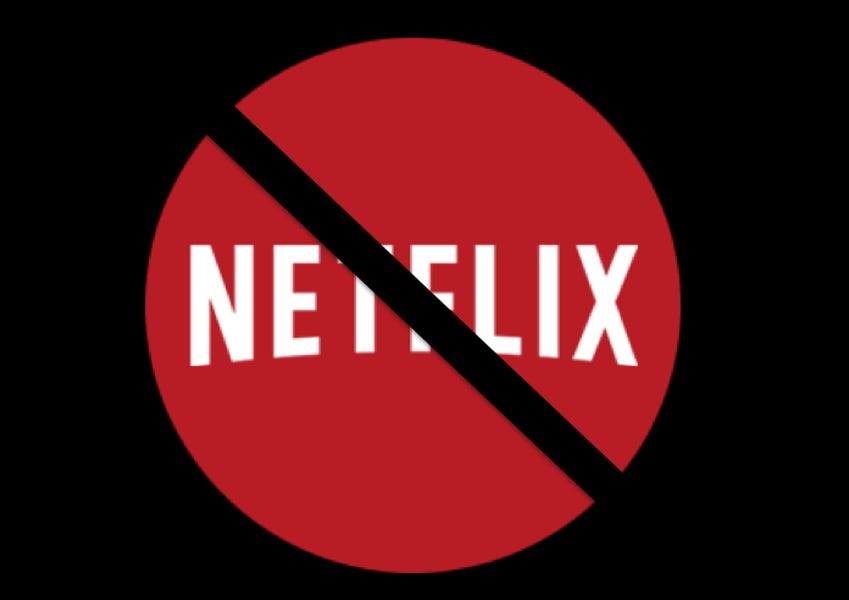Netflix drinks far too much of their own Kool-Aid
Is this the end of the road for the 'darlings of Wall Street'?
In October last year, one Netflix share would have cost you over $700.
Today you can easily pick them up for less than $200.

Spotify shares are worth less now than they were when they listed 4 years ago; and CNN+ (the much talked about streaming subscription service put together by CNN) was shut down not even a month after it launched.
Even having spent millions on marketing the service, the CNN+ audience didn't sign up for the service like expected - their owners threw in the towel before they even had a chance to pack away the Champagne served at the opening party.

The bright shiny halo, that not too long ago, beamed so brightly around the crown of subscription-business models, is fading fast.
The bubble is bursting.
So what has gone so terribly wrong at these subscription companies?
At Netflix (a company well-known for having a ruthless internal culture where the fear of being fired on the spot is ever present) there are some sensational reports of senior executives being stabbed in the back, all to the enthusiastic applause of the rest of Hollywood; who clearly love to see the bully on the school yard taking a punch right on the nose.
They have followed a similarly ruthless business strategy by created essentially a closed system of their own. They have focused on creating their own content (as they always intended to do) but at the same time, have burnt bridges with just about every other production studio in Hollywood.
Their access to desirable content, which is not their own, is disappearing.
Without the big brands, that a company like Disney has (like Star Wars and Marvel), Netflix are then totally reliant on the quality and crowd-drawing power of their own shows, which is never going to retain the millions and million of people who actually want a bit of variety in their entertainment line up.
Ironically, this situation has caused almost every studio in Hollywood to create their own streaming platforms in competition to Netflix. With so much choice, customers are going to churn - and churn for such a highly-leveraged company (carrying over US$15 billion in debt) is a serious problem.
The Netflix strategy has essentially created the conditions for rising streaming competition, an industry which they pioneered, which is now threatening the survival of Netflix itself.
On reflection, if I consider how we as a family use Netflix - we are watching less and less of what they show. For us, we haven't really found anything worth watching for some time - and then the stuff we do try, seems to be increasingly half-baked and inferior.
We're not in a rush to cancel the subscription just yet, but I can't say that anyone would mourn the loss if we did.
Spotify
Spotify's key problem is also one of strategy - again they have backed the wrong one and have stuck to it because of sheer arrogance.
In order to get the scale they need to satisfy their shareholders, Spotify have made it their primary objective to get subscribers. To get subscribers they offer very cheap access to music. Because their margins are so thin they've essentially built a house of cards - any slight breeze and the whole thing comes tumbling down.
The cash flow that they generate is razor thin, their expenses are huge and the whole thing is based on the momentum of a strategy that's very difficult to transition away from once it's in motion.
The breeze that is blowing around Spotify is the increasingly disastrous popularity of new music. To try stem the tide, Spotify is trying to lure subscribers towards content that Spotify commands a higher margin over, but you can't force people to like your cash cow if the cash cow is not to their liking.
As customer churn increases at Spotify, so to the problems intensify.
Now what?
Both Netflix and Spotify will offer analysts lots of external reasons as to why they are struggling.
Inflation, heightened competition, the war in the Ukraine etc etc etc; but what it all comes down to is whether or not they have the shows / music that keep people subscribing or not, and at what cost they can secure that entertainment at.
You can't build a business on endless subscriber growth; at some point you will hit your customer ceiling and then you need a clear plan as to how you generate sustainable cash ex-growth. Their subscriber profile will also change as the business matures. Early adopters of Netflix most likely value very different kinds of content to the more mature audiences that are now signing up, that transition needs to be very carefully managed without losing the best customers.
If you are a disruptor in an industry, you also need to have a clear understanding of how conditions will change for your business in the future once all of your legacy competitors have caught up with you.
Netflix (and Spotify) seem to have failed to have thought strategically about any of these things. They're acting as if they operate in a closed vacuum where they have total control to do as they please. But these businesses (as powerful as they are) cannot dictate and control everything - and their failure to recognise that will continue to be a massive risk for them.
Their quest of world domination and power is the exact thing that will upend them - like it always does.
They've drunk far too much of their own Kool Aid and now can't see the risks baked into their own mental models.










